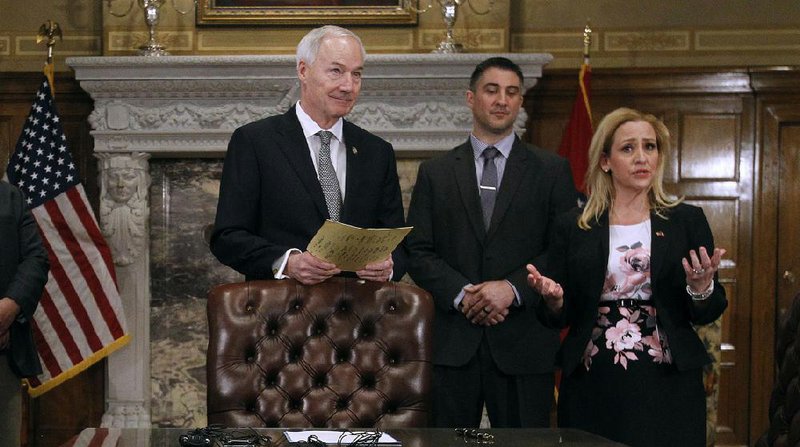Gov. Asa Hutchinson on Wednesday signed legislation to increase criminal penalties on telephone scammers and robocallers, a proposal that has been hailed as the most popular bill of the legislative session.
Hutchinson was joined at the signing ceremony by Attorney General Leslie Rutledge, who said that going after fraudulent callers was her office's "No. 1" consumer protection priority.
"They not only drive people up the wall... but unfortunately they cost Arkansans thousands if not millions of dollars every single year," Rutledge said.
Senate Bill 514 would increase the penalty on scam callers from a misdemeanor to a Class D felony, punishable by up to six years in prison.
Because most of the calls originate from outside the state, the bill would require that telecommunication companies such as Verizon and AT&T submit an annual report to the Arkansas Public Service Commission about the steps they are taking to go after scammers.
Rutledge had previously written in a guest column in the Arkansas Democrat-Gazette that "the sheer volume of spoofed robocalls originating out of country turns efforts to identify the source into a perpetual game of whack-a-mole as different phone numbers are continuously used."
[RELATED: Complete Democrat-Gazette coverage of the Arkansas Legislature]
She said at the bill-signing that getting the phony, scam and robocalls to stop will require additional collaboration between the states and the Federal Communications Commission.
With the governor's signature on Wednesday, SB514 became law.
The legislation did not receive a single no vote in either the House or Senate, and all 35 members of the Senate voted for the bill.
During debate in the Senate, one lawmaker had remarked that his wife told him not to come home if he didn't vote for the bill.
Metro on 04/04/2019
